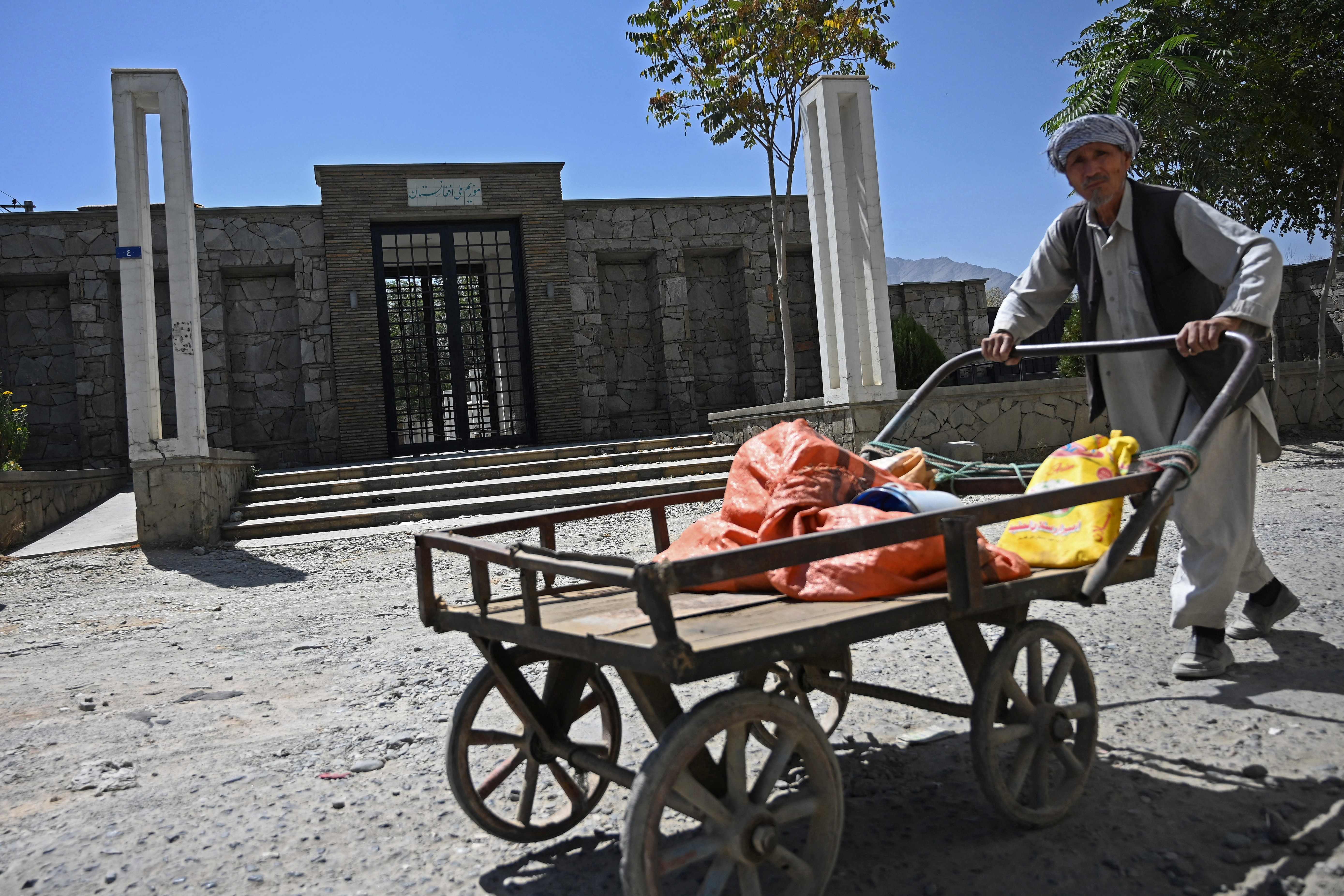Afghanistan on brink of universal poverty, says UN
A ‘rapid, catastrophic deterioration’ in the lives of Afghanistan’s most vulnerable population is impending, says top UN official

Your support helps us to tell the story
From reproductive rights to climate change to Big Tech, The Independent is on the ground when the story is developing. Whether it's investigating the financials of Elon Musk's pro-Trump PAC or producing our latest documentary, 'The A Word', which shines a light on the American women fighting for reproductive rights, we know how important it is to parse out the facts from the messaging.
At such a critical moment in US history, we need reporters on the ground. Your donation allows us to keep sending journalists to speak to both sides of the story.
The Independent is trusted by Americans across the entire political spectrum. And unlike many other quality news outlets, we choose not to lock Americans out of our reporting and analysis with paywalls. We believe quality journalism should be available to everyone, paid for by those who can afford it.
Your support makes all the difference.Nearly 97 per cent of Afghanistan’s population could slip below the poverty line amid a prevailing humanitarian crisis aggravated by a prolonged drought, food shortages and the Covid-19 pandemic, the United Nations has warned.
The country is teetering on the brink of universal poverty, said a study released by the United Nations Development Programme (UNDP) on Wednesday.
Afghanistan’s poverty rate could increase by 25 per cent as its gross domestic product is estimated to contract by as much as 13.2 per cent, it said.
Four potential scenarios – based on the latest available data in 2018 – including factors of increasing intensity and isolation in Afghanistan were analysed by the study, underscoring the need for a response to the looming political and economic crisis.
In the worst case scenario, factors like a two-month interruption of trade with all major partners, a 4 per cent decrease in capital spending efficiency and disruptions in connectivity could cause Afghanistan’s baseline poverty rate, currently at 72 per cent, to balloon.
Battered by conflict for the past two decades, Afghanistan’s crises have been compounded by the current political transition from the western-backed government to Taliban rule.
This upheaval has led to a collapse of public finances, frozen foreign reserves and increasing pressure on the banking system, the study pointed out.
There is an impending “rapid, catastrophic deterioration in the lives of Afghanistan’s most vulnerable population”, according to the UN’s assistant secretary-general Kanni Wignaraja.
“We are facing a full-on development collapse on top of humanitarian and economic crises. Half of the population is already in need of humanitarian support,” she said.
Suggesting a recovery course, the UNDP has proposed interventions like helping with essential services, basic income and small infrastructure and aims to aid nearly 9 million affected through a 24-month community development programme.
The interventions, UNDP said, can help people benefit from cash-for-work schemes and allow for grants to be given to small and medium enterprises, especially businesses led by women.
The UN agency also recommended monthly cash transfers for children, senior citizens and people with disabilities.
“A transition to new authorities, a pandemic, a drought, an oncoming winter season – each of these on their own would already pose a major challenge. Taken together, they form a crisis that demands urgent action,” Ms Wignaraja, who also serves as the UNDP’s director of its regional bureau for Asia and the Pacific, said.
Ms Wignaraja has asked for the international community’s support to meet the humanitarian crisis.
The report comes shortly after the UN special envoy for Afghanistan said the country is “on the verge of an economic collapse” that will create a larger humanitarian crisis and exacerbate migration in the region and the world.
The Independent has launched a petition urging the UK government to be more ambitious in its plans to take in Afghan refugees following the Taliban seizing power and withdrawal of western troops.
Afghans are now facing a similar plight. You, our readers, have already shown your strength of feeling in letters and on social media. Here’s a chance to have your voice heard by adding your signature. We thank you for your support. To sign the petition click here



Join our commenting forum
Join thought-provoking conversations, follow other Independent readers and see their replies
Comments